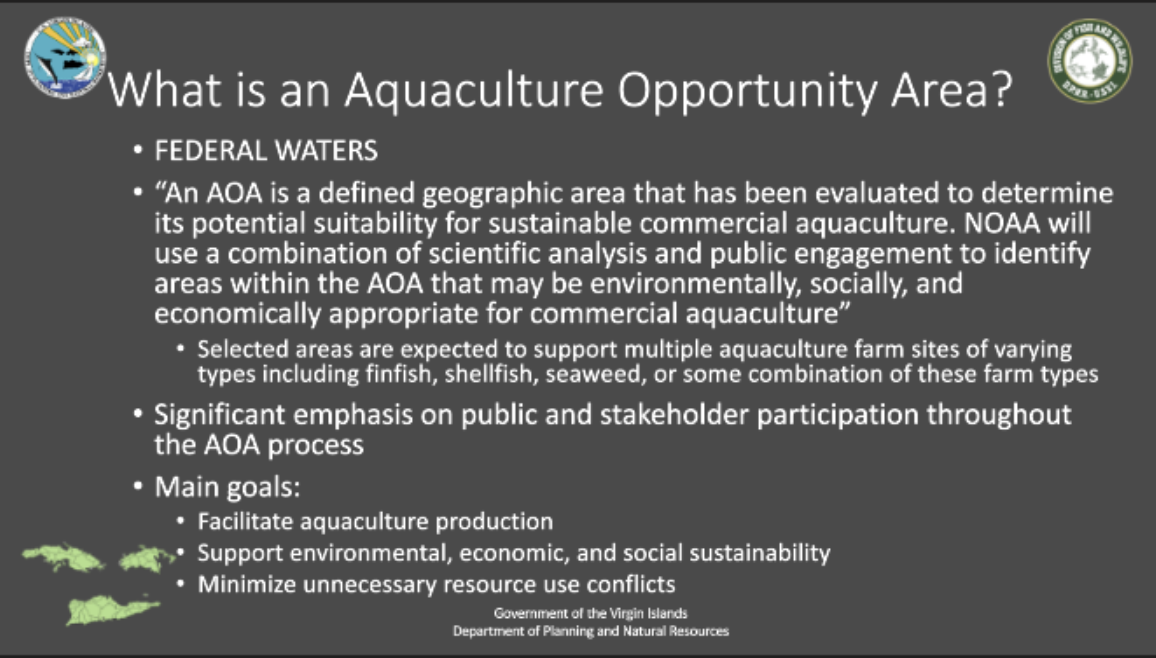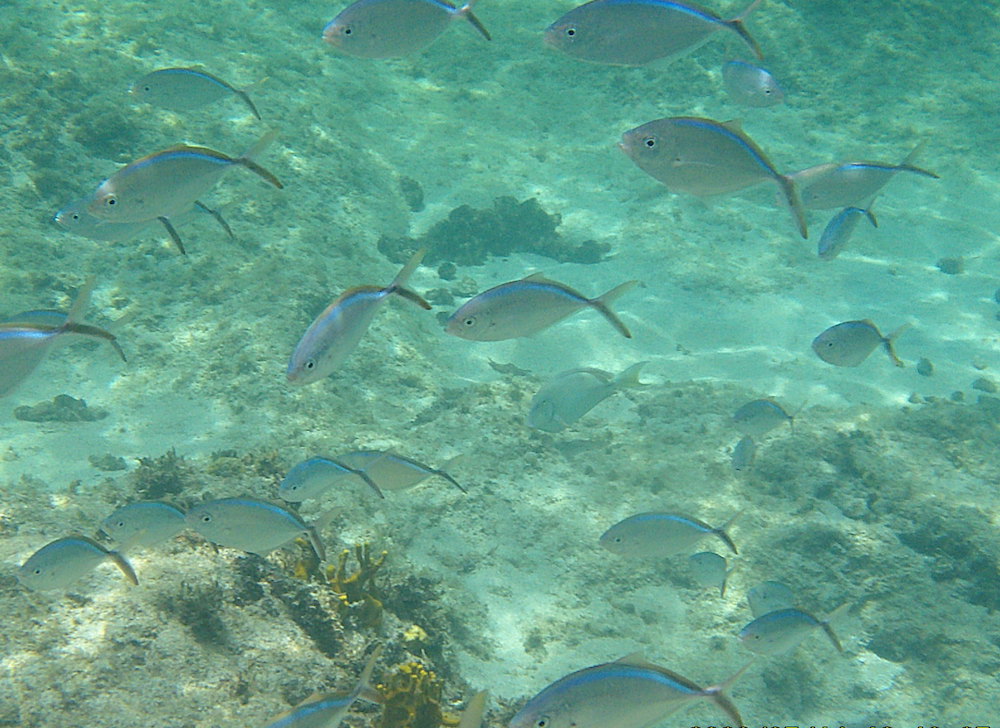In the planning stage for years and created by law in 2000, the Aquaculture and Mariculture Commission finally held its first meeting Wednesday to begin setting rules and regulations for a potentially lucrative new industry in the Virgin Islands.
Created by Act 6471, the commission chair, Nicole Angeli, director of Fish and Wildlife under the Department of Planning and Natural Resources, told commissioners and others attending the virtual meeting their goal is to formulate rules, regulations and draft a strategic plan – all by December 2025.
“So what we are charged with doing is creating and designing those processes and procedures that will streamline aqua-mariculture as an industry in the U.S.Virgin Islands. We have very specific guidelines in Act 6471,” Angeli said.
When the idea of the program began to show promise, staff from DPNR visited seven facilities, gathering research from working hatcheries and even a few who were dealing with the aftermath of a hurricane.
Also during that time, research from a Salt River clam population and the Rust Op Twist aquaponics operation in the 1970s indicated the Japanese Littleneck Clam would be a good option. Angeli said it will likely be the first marine creature to be cultivated.
One big task the commission will have to decide is what areas of open water are “environmentally, socially and economically appropriate” for growing marine life. Angeli recommended the commissioners study NOAA’s Aquaculture Opportunity Area Atlas for the U.S. Gulf of Mexico, which already identified such aquaculture-opportunity areas in the Gulf of Mexico and Southern California.

In addition to a set of rules and regulations drafted previously, the commission will be responsible for finalizing the document. Before it can be approved, there will be a public hearing for community input and then it will be sent to the Justice Department and Government House for approval.
“Now that it’s off the ground, out in the public, we can add what the community wants,” Angeli said.
Some other considerations for the commissioners are: which species of fish to include in the program and which to exempt; licensing and operation requirements, inspection and definitions of common terms such as “agricultural products,” “disease,” “ pollution,” and “farm.”

One big issue to address, according to Angeli, is to determine who can grow and sell fish, such as fish mongers, as well as how to ensure clean, safe and healthy fish and operations.
“As the industry evolves, we hope to have enforcement officers,” Petersen added.
Last March, the Source talked with John Farchette, marine park ranger for the DPNR Fish and Wildlife division, who discussed the history and research behind creating the program.
Farchette shared that he and other DPNR staff studied projects to raise mutton snapper and cobia, both endemic to our area, for export. The fish were chosen because of their growth rates, fertility, egg production, and ability to thrive in the Caribbean. He described cobia as a white, flakey fish used for sushi.
Farchette said cobia could be farmed easily because they grow very fast and can be harvested in less than a year. The sea surrounding the Virgin Islands has 25 percent better biomass than the study group, which means fish would produce more in less time.
“It would allow us to do something off the shelf,” he said.
Before the bill was written and long before he was governor, Farchette said Albert Bryan Jr. approached him to express his interest in helping to develop the program and has supported it ever since.
During Wednesday’s meeting, Farchette was commended by Angeli and others for his passion and perseverance for the program over the years.
Commission members are Kirk Lewis, William Tobias, Gerson Martinez, Usman Adamu and Louis Petersen. They represent expertise in aquaculture development, marine biology, commercial fishing, the V.I. Agriculture Department and the University of the Virgin Islands.


